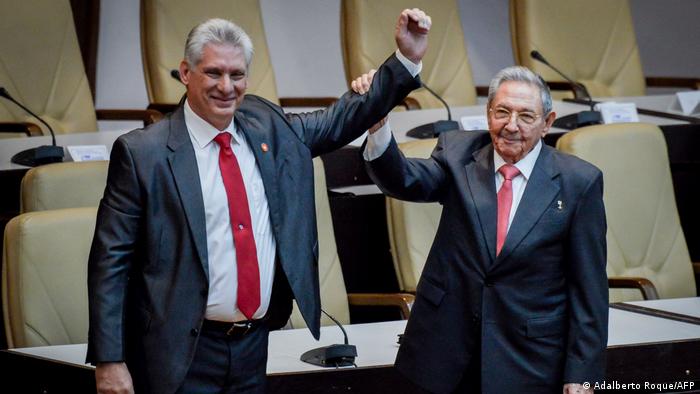
On 19 April, Miguel Diaz-Canel replaced Raul Castro as leader of Cuba and First Secretary of the Central Committee of the Communist Party of Cuba (PCC). This makes him the country’s first civilian leader; however, the transition is unlikely to result in dramatic policy shifts in the one-party system which Diaz-Canel has vowed to safeguard. Further, Raul Castro would still be consulted on “strategic decisions.”
Born one year after Fidel Castro’s forces took control of the island, Díaz-Canel is the first person outside the Castro dynasty to lead Cuba in decades. Díaz-Canel’s slow and steady climb up the ranks of the bureaucracy has come through unflagging loyalty to the socialist cause.
Now, as leader, Díaz-Canel will have to do a difficult balancing act. Most expect him to be a president of continuity, especially because he arrives in the shadow of Raúl Castro, who will remain the head of the armed forces and the Communist Party, arguably Cuba’s most powerful institutions.
A Castro Loyalist
Díaz-Canel grew up in the central province of Villa Clara, about three hours from Havana, the son of a schoolteacher and a factory worker. He studied electrical engineering at the Central University of Las Villas, where he was active in political life. He served three years in the army, another node of power in the country, after which he resumed his slow climb up the party ladder.
He was viewed from an early age as a rising star within Cuba’s Communist Party.
As a young man, he joined the Union of Young Communists, the party’s youth league, where he stood out among his peers. He later worked as a bodyguard to Raúl Castro. According to a friend who knew him at the time, the assignment allowed him to show loyalty to the cause, and drew Díaz-Canel close to both Raúl and Fidel Castro.
Fidel Castro to Canel
Fidel Castro seized control of the nation in 1959. In the ensuing years, the Castros ruled over Cuba with ironclad control, bolstered by a cadre of loyalists, nearly all of whom had fought alongside them in the revolution. There was literally no opposition to the Castros rule in Cuba, except time.
Fidel Castro handed power to Raúl in 2006, then died 10 years later at the age of 90. Raúl then ushered in some of the most substantial reforms in decades, and is now orchestrating yet another one — the passing of the torch to a new generation.
After opening up the economy to private investment and entrepreneurialism, expanding travel in and out of the country and re-establishing ties with the great enemy, the United States, Raúl Castro has selected Díaz-Canel to fill his shoes.
